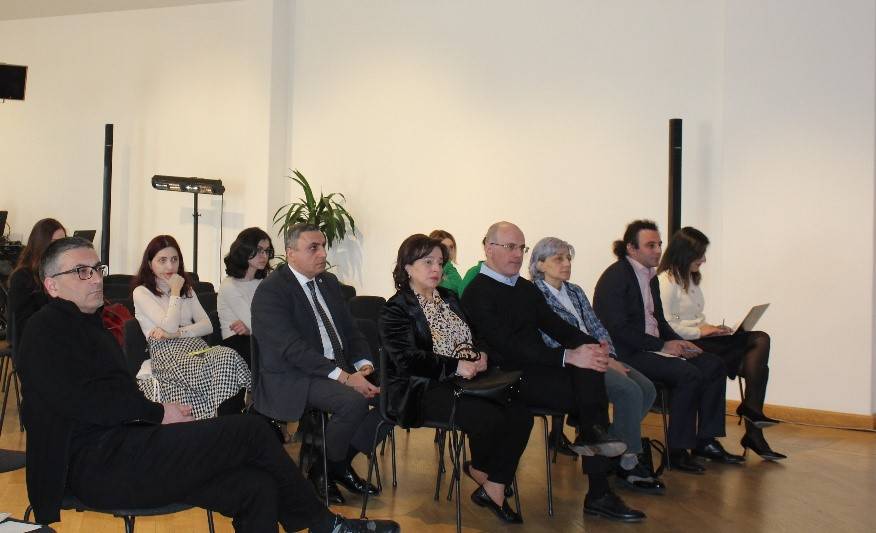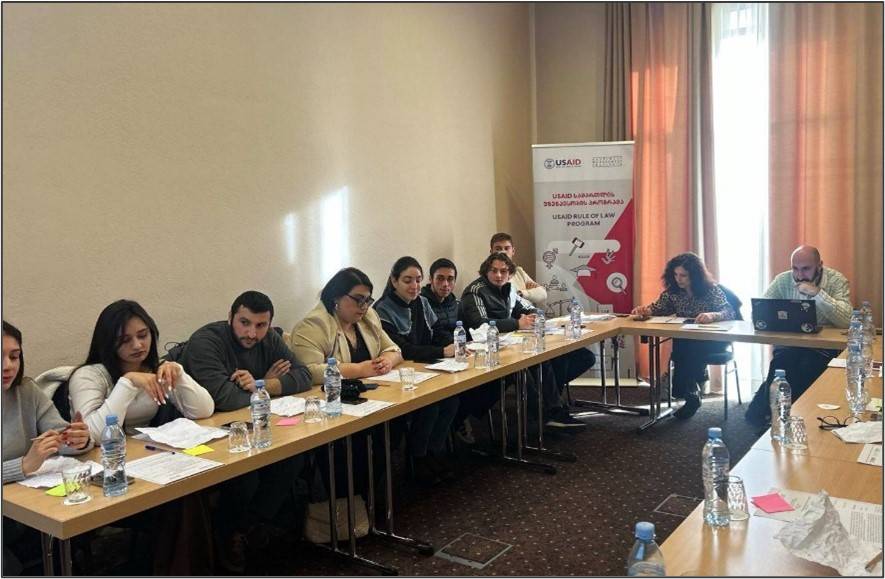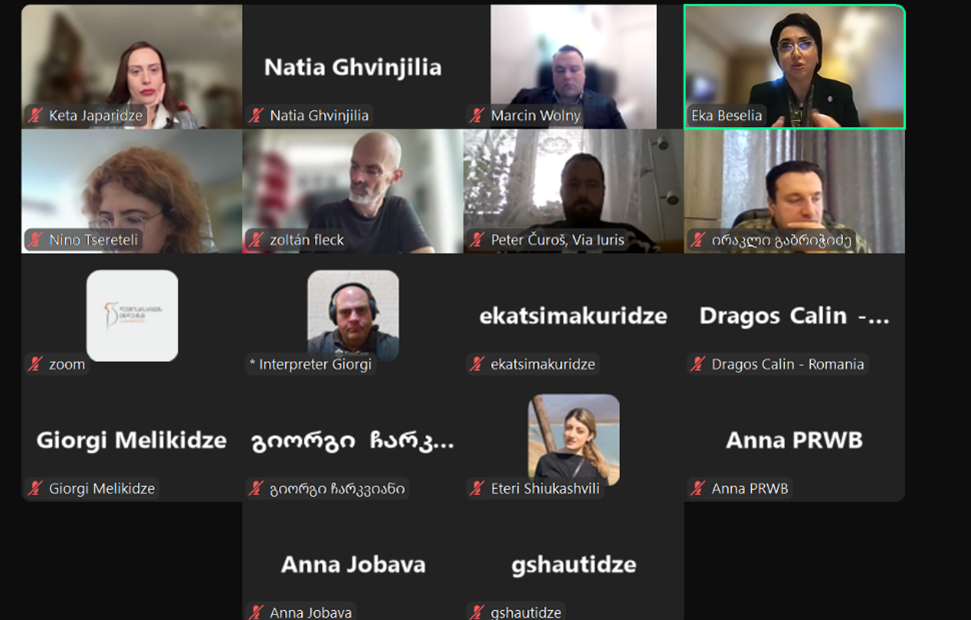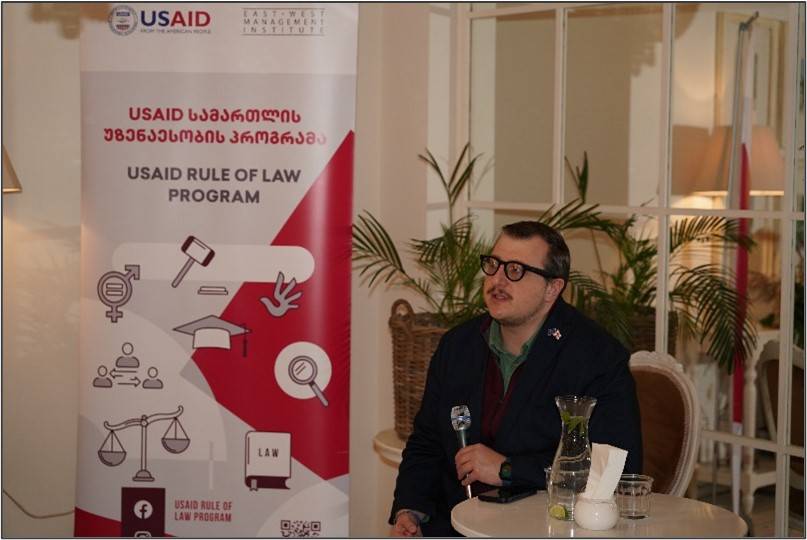Georgian Democracy Initiative (GDI) Reviews Ten Years of Constitutional Court Operation
The Constitutional Court of Georgia is a judicial body of constitutional review that plays a key role in observing constitutional provisions, securing the functioning of state institutions’ constitutional framework based on the separation of powers, protecting constitutional human rights and freedoms, and enhancing the stability of the state.
On January 30, 2024, the Georgian Democratic Initiative (GDI), with USAID Rule of Law Program support, presented research assessing the operational effectiveness of the Constitutional Court in the period 2012-2023.
In her opening statement, Manana Kobakhidze, Vice-President of the Constitutional Court, thanked GDI for the report and its strategic litigation work at the Court. She noted, “Our common objective is to make the Constitutional Court proceedings more effective. The Constitutional Court mechanism must be flexible, guaranteeing the protection of human rights in Georgia.”
Giorgi Chkheidze, Chief of Party of the USAID Rule of Law Program talked about the importance of the civil oversight of justice sector institutions. He said, “Methodologically sound monitoring initiatives are important because they generate data for discussion aimed at making the work of justice institutions more effective and transparent.”
GDI representatives and the research authors, Eduard Marikashvili, Vasil Zhizhiashvili and Mariam Kvariani presented the findings of the report to the judges and staff members of the Constitutional Court, representatives of Parliament and the Public Defender’s Office, as well as leaders of local non-governmental organizations.
The report analyzed the publicly available information on the complaints lodged, minutes and decisions of the Constitution Court. It also considered opinions from experts. In general, the authors found that while there were significant improvements in Constitutional Court operation over the years, there was a need for improvement in such areas as the registration of lawsuits, the appointment of reporting judges, terms of case consideration, judicial appointments, referrals from Common courts, recusal of judges, and disciplinary proceedings.
They found the Court continues to have problems in resolving cases in a timely fashion. It noted that the introduction of an electronic system for case distribution has notably improved the assignment of cases to panels and the selection of reporting judges. However, the researchers criticized the procedures used for selecting Constitutional Court judges. They noted that the selection criteria and assessment principles are not clearly defined. The research also found that the common court judges do not frequently use the constitutional submission mechanism.








